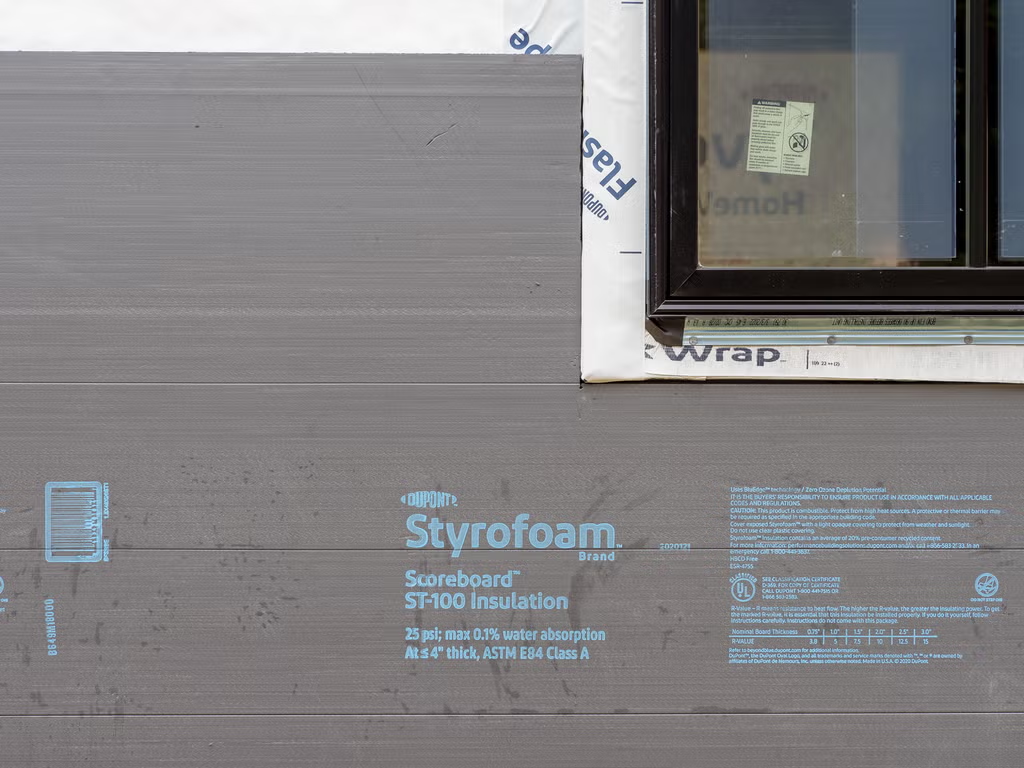For over a decade, extruded polystyrene insulation (XPS) products used in building and construction have relied on hydrofluorocarbon (HFC)-based blowing agents to achieve important foam properties, such as comprehensive strength, moisture resistance, and thermal insulation performance. However, most HFCs have a relatively high intrinsic global warming potential (GWP) and are considered potent greenhouse gases. Therefore, a low GWP solution was necessary to meet market needs for low-embodied carbon products and to exceed building energy efficiency standards addressing climate action.

DuPont seized the opportunity to reinvent its StyrofoamTM Brand XPS Insulation by developing an innovative, low embodied carbon solution that has achieved a significant reduction in GHG emissions across the product life cycle while maintaining a wide range of product properties such as mechanical strength, and moisture and fire resistance. DuPont has further paired their technology with a state-of-the-art infrared attenuator (IRA) technology to help reduce radiative heat transfer, enabling the reduction in the use of blowing agents and reducing the GWP impact and raw material consumption.
DuPont’s StyrofoamTM Brand ST-100 Insulation, introduced in 2022, has achieved a 94 percent reduction in embodied carbon as verified through a third-party Life Cycle Assessment (LCA) study published as the Environmental Production Declaration (EPD) assessment. This substantial reduction provides the same operational carbon savings through stable, long-term insulation value for new and retrofitted buildings.
Buildings play a critical role in helping mitigate and adapt to climate change — a real and rapidly growing threat to society and the planet. The introduction of low-GWP offerings within the StyrofoamTM Brand XPS Insulation product line supports the DuPont Performance Building Solutions and Corian® Design goal to achieve a 75 percent reduction in GHG emissions from its operations by 2030.